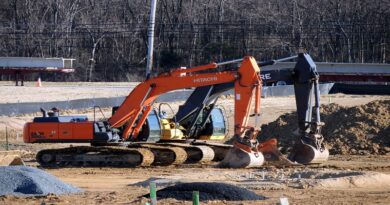Postgraduate courses in Surveying
There are so many people involved in the building, producing and work of buildings and properties that we often don’t even think about.
Surveying is a huge part of this process and the work of surveyors is vital to each and every project. Surveyors have been in high demand in recent years in the UK and at present, the average hours worked in this field are 36 hours weekly.
If you feel this may be exactly what you’re looking for, then you are in luck because there are plenty of courses to choose from.
What is Surveying?
Building surveying involves examining and recording the features and area of a piece of land to be able to construct a map, plan or a detailed description of the area. It is used in order to determine the features and boundaries of a property as well as find out how to develop land and determine easements and encroachments. Surveying is used in many different industries and fields. There are different types of surveying such as building surveying and quantity surveying.
Quantity surveyors are responsible for the financial side of these projects. Their skills are often needed at the beginning of projects and they ensure that the construction of a building is on track in relation to cost planning, contract administration and life cycle costing.
Both of these work closely together but do different types of jobs. A building surveyor will spend more time at construction sites and information found will be used to prepare documents. Those documents are then passed on to the quantity surveyors to prepare bills for the quantity of materials and products needed. So, while they are different types of surveying in different areas, they work closely together.
Being a surveyor
Surveyors determine property boundaries by taking precise measurements. They provide data for industries such as engineering, map making, construction that is all relevant to their clients. Day to day tasks of surveyors can vary depending on the particular project they are working on or what type of surveyor they are. General tasks you may carry out in the role are:
- Taking precise measurements
- Mapping boundaries
- Providing data to clients/employers
- Determine location of roads/buildings/properties for building foundations
- Research land records
- Write reports on property restrictions
- Work between offices and fieldwork
- Walking or standing for long periods, sometimes carrying heavy equipment
- Use sophisticated technology to carry out work
- Keep and update records
- Interact with clients
Courses
There are a few different courses to choose from across the UK. Similar to most fields, a postgraduate degree in a particular area of surveying as well as experience, will increase employability chances and possibly salary. Examples of courses you can avail of are:
Quantity Surveying
A postgraduate course in quantity surveying is mostly geared towards those who have experience in surveying, though not limited to those who do not once they have an honours degree in the area. These courses address the needs of professional practice and help to develop the necessary knowledge and skills needed. Core focuses are construction technology, measurement, law, economics, procurement and contract management.
Building surveying
Courses in building surveying will prepare students to gain and improve their skills in design, construction and property management. They will focus on all aspects of building from conceptions, feasibility and design to construction, tactical managements, repair refurbishment, conversion and conservation.
Entry requirements
Entry requirements differ from course to course and university to university. However, in most cases a good second class honours degree in surveying or a related field is desired. Some courses take on students who do not have an undergraduate degree but do have many years experience in the construction industry or in surveying. Others require a degree but no experience so it is important to research your course in detail to be sure you meet the requirements.
Job options
Examples of jobs you can use a surveying degree for are:
- Building surveyor
- Quantity surveyor
- Commercial surveyor (specialize in land and property intended for business use)
- Project manager
- Construction manager
- Planning and development surveyor
Potential employers
Some potential employers for those with a degree in surveying of any kind might be:
- Quantity surveying consultancies
- Project management consultancies
- Construction companies
- Contractors
- Civil engineering consultancies
Salary Expectation
Your salary will depend on the route you take as well as your experience and sometimes even location of the project being carried out. Overall, the average salary in surveying is £43,800. The salary expectation of a building surveyor with experience in the UK can range from £28,000 to £50,000. A quantity surveyor can start out around £25,000 and as they gain experience they can earn up to £50,000-£80,000.
Skills and requirements
- Problem solver
- Technical skills
- Planning skills
- Attention to detail
- Hard working
- Good communication skills
- Works well with others
- Can work off own initiative
- Strong management skills
- Strong math skills
- A creative mind




